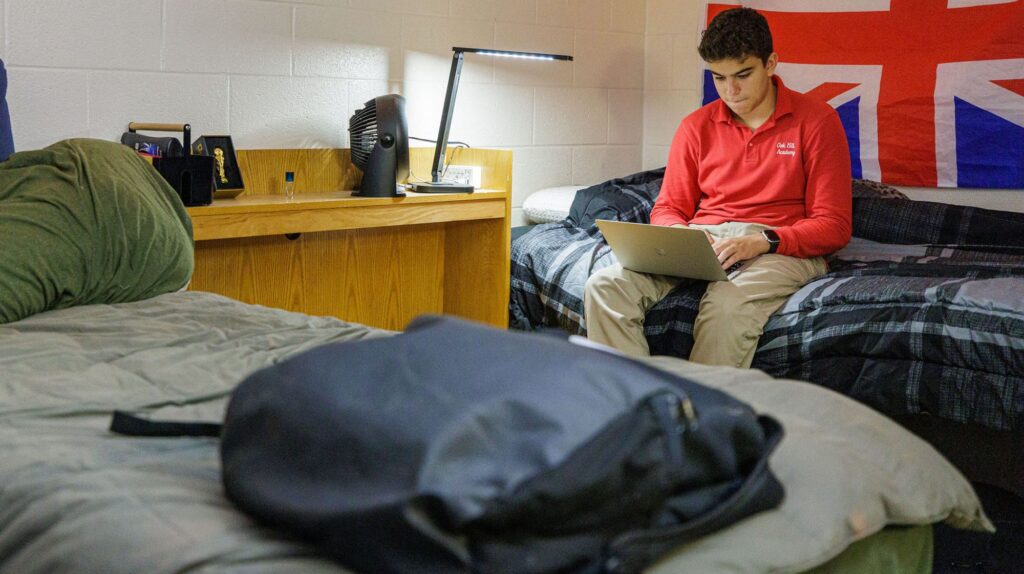Some of the most prestigious high schools in the US are elite boarding schools, many of which are in New England, and which have been educating students for hundreds of years in many cases. Like the elite liberal arts colleges they are often associated with, these schools have long and storied histories, and are seen as bastions of education, class, and power. Needless to say, these schools are also incredibly expensive, with annual tuition fees rivaling those you might find at a four-year college. While many parents are of course attracted to the possibilities these schools afford, the question of affording the school at all is far more pressing. In this article, we’re going to look at the affordability and financial aid on offer at these elite schools. We will look at whether they offer financial aid, and why, and then at how this aid works in practice. We will also cover applying for this aid, and then go over some financial aid practices at select boarding schools. Let’s jump right in!
Do Boarding Schools Offer Financial Aid?
In general, yes, as do most private high schools. These schools know they are expensive, and that most parents will not be able to afford the tuition they charge. That said, even though these schools are generally non-profit institutions, they do have significant costs and operating expenses; they have staff to pay, facilities to upkeep, and often long term projects designed to improve the schools, and these all need to be funded somehow.
Private high schools rely on tuition to fund their continued existence. Like colleges, most boarding schools have endowments of some kind; the oldest and most prestigious schools having the largest. These funds can only do so much however, and so most schools do need to rely on students for their funding.
Thus, aid offers at boarding schools are generally limited in two ways. First, these schools usually only offer need-based aid. There are a limited number of private high schools which have merit scholarships, but these are the exception; in general the only aid provided is need based; we’ll explore why this is in the next section.
Second, these high schools often have a limited aid pool. This is similar to most colleges; if you rely on tuition to keep the lights on, then you can only admit so many students who aren’t paying tuition before you start to run into issues. Some of the schools with the largest endowments are need blind, but many private high schools will take whether or not you need financial aid into consideration when making admissions decisions.
Financial Aid for International Students
In general, boarding schools will admit international students, but do not offer financial aid to international students. This is not universally the case, but the schools that do are the exception, rather than the rule. Generally, you must be either a US citizen or permanent resident to apply for financial aid at a private high school.
Why do Boarding Schools Offer Financial Aid?
So if these schools do need the money to remain operational, why do they offer any financial aid at all? There are a few reasons for this, but the simplest and most straightforward is the one offered by the schools themselves: that it improves the school community.
High schools are an important part of framing who students are and what beliefs they hold, and these schools believe that exposure to a diverse set of beliefs and backgrounds will be beneficial to their students. There are limited groups who can afford the tuition to these schools, and while the values of these groups can differ greatly, they do tend to have a unified perspective.
In order to interject some differing viewpoints and backgrounds, private schools provide financial support to some students. These students are often a small percentage of the total student body, but are seen as a necessary component of the school’s environment, keeping it from being overwhelmingly homogenous.
Some schools also likely offer a limited amount of need based aid to families who can mostly but not entirely afford tuition. A $10,000 a year scholarship may end up netting them an extra $40,000 in tuition in this way. This is not a stated reason these schools offer scholarships, but we have observed a similar behavior from colleges when it comes time to apportion aid, and the same incentives apply to these schools.
How to Apply for Financial Aid from Boarding Schools
The financial aid application is a separate and optional part of the application process. Each application is slightly different, as the application to each school is slightly different, but they do have overarching similarities, as they are trying to ascertain the same things.
Financial aid applications are due at the same time as overall boarding school applications, but must be completed and submitted separately. The exact deadline for these depends on the school, but is generally in December or January. If you are admitted to a school, they will give notice on any financial aid awards at the same time. Some schools will continue aid awards automatically, while others will require you to update them on your financial situation each year.
These applications will require you to submit tax returns to verify your reported income. Many, but not all, boarding schools use Clarity to handle all financial aid applications. You will submit documents through this service, which is encrypted to keep your information secure.
Based on your reported income and assets, the schools then calculate how much they expect you to pay, and how much aid they will offer. How each school does this is different; some have strict guidelines, while others are more flexible. In general, however, the larger a school’s endowment, the more generous they are in their aid policies.
Financial Aid Policies of Select Boarding Schools
There are a lot of boarding schools in the US, far more than we can cover here. We will instead cover a sampling of a number of elite institutions, not every school, but enough to constitute a representative sample, to show what the range of options looks like.
| School | Financial Aid Policies |
| Andover | Financial aid is need based; they meet 100% of demonstrated need. Admissions is need blind. They do not count home value of up to $650,000 among assets. 47% of the student body receives some aid, 12% is on full scholarship. |
| Choate | Financial aid is need based, and Choate pledges to meet full need. 34% of students received some aid last year. There are no hard income cutoffs; most families receiving aid earn under $250,000, but some families earning more also receive aid. |
| Deerfield | Financial aid is need based. Families earning under $150,000 pay nothing, those earning more pay no more than 10% of annual income on tuition. This is dependent on assets. 40% of current students receive some aid. |
| Exeter | Aid is need based, and all admissions decisions are need-blind. They pledge to meet 100% of demonstrated need. Families earning under $125,000 pay nothing for tuition; those earning more pay based on assessed ability. |
| Hotchkiss | Aid is need based, and they pledge to meet 100% of demonstrated need. 37% of Hotchkiss students receive some aid, 26% attend tuition free. Most of the students receiving aid earn under $200,000 annually, but there are awards for incomes up to $450,000 or more. |
| Kent | All aid is need based. Approximately 32% of Kent students receive aid, ranging from a few thousand dollars to full tuition. They have no set income limits on who receives aid. |
| Middlesex | Aid is offered based on financial need. 34% of families received some amount of aid in the past year. The majority of families receiving aid earn under $200,000 annually, but some receive aid up to and over $300,000 in income. |
| Putney | Aid is offered based on financial need. 37% of families received some amount of aid in the past year. Putney has no strict income cutoffs for determining which families receive aid. |
| Taft | Aid is based on demonstrated need and the availability of funds. 34% of students receive some amount of aid currently. Admissions is initially need blind, but need may be considered as a factor if admissions determines they cannot meet the full need of all students. |
Final Thoughts
Private schools are very expensive, especially boarding schools, and it is unsurprising that many parents want to see if financial aid is an option available to them. We hope this article has given you insight into how financial aid works at these schools, and why they make the decisions they do when it comes time to distribute aid, and why they so often don’t.
Choosing the right high school is often a challenge, especially when you are confronted with questions about whether or not paying for a private school like this is really worth it. This is something we find ourselves discussing with parents quite often, and for good reason; the right high school is one of the biggest factors in getting students into a great college, and in setting them up for success later in life.
If you’re stressed about the choice of high schools, or want help applying to an elite boarding school, then Ivy Scholars can help. We’ve helped students get into some of the top high schools in the country, and are able to advise you on every aspect of school selection and applications. Schedule a free consultation today to learn how we can make your life easier.








